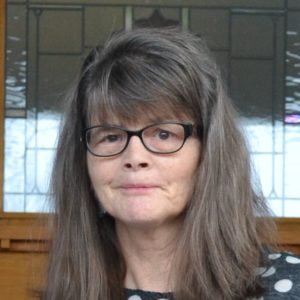Amelie Ratliff is a community and donor activist based in Boston. She has been a fan and Corporate Accountability member since the Infact days.
Why did you get involved with Corporate Accountability (which was called Infact at the time)?
I grew up in Birmingham during the civil rights movement. In the early 70s I was actively learning about race and gender oppression in the U.S. and funding civil rights work. At the same time, I was becoming aware of our military aggressions in countries in the Global South. I had close friends who were Jesuit priests who came back from Chile after the military coup. I learned how the democratically elected Chilean government was overturned, and how the U.S. was very involved in bringing it down. The U.S. was supporting the people who owned the copper mines there, and the coup was a victory for global capital, not for democracy.
I don’t think you can overestimate how important it is to shift to one’s view of oneself as a citizen of a globe, as opposed to simply a citizen of one’s neighborhood, one’s city, one’s state. And it often takes something that is jarring to make that shift. Learning about the Chilean coup from my friends was one of those moments for me.
Then in the early 80s, I heard from Infact organizers about how Nestlé was aggressively marketing infant formula in Global South countries, and how babies there were getting sick and dying from bottle feeding. That made me really think about corporations as another arm of U.S. aggression. It was a new awareness for me to think about that—and about the responsibility we have as people in the U.S. to challenge transnational corporate power.
You hosted a house party for Corporate Accountability’s close Nigerian ally, Environmental Rights Action (ERA). How do you approach this work as a donor-activist and about the house parties you regularly hold?
I bought my house because it’s a great place for people to gather and hold semi-public events. Organizations always need space, money, and donors. If you can provide those three things in an evening—that’s a gift. It fits with my personality too, which is: you got it, you share it; you got it, you share it.
Organizations that are working internationally and in the U.S. South are the ones I feel particularly strongly about in terms of giving them visibility and introducing them to potential donors and activists. Because something like 6 percent of donor dollars in the U.S. goes to international organizations. And a tiny fraction of that goes to funding movements—as opposed to charity.
But in terms of movement work like the kind of work that Bode Oluwafemi of ERA is doing in Nigeria, or the activists of Flint Rising in Michigan, or the kind of organizing that’s happening along the Gulf Coast against the corporate abuses of the chemical land gas companies—we need to support front line organizers in these places. I like to give them visibility so they can to tell their story to new people. I just was totally inspired by the work that ERA is doing in Nigeria to challenge the privatization of water.
What should we be doing as social change agents right now?
All of it. We should be doing all of it. It’s really not a time for people to be judging other people’s activism. We need organizations like Corporate Accountability focusing on corporate abuse. We certainly need environmentalists and environmental justice fighters. We need the press. We need to be shoring up our institutions. The nature of the moment is that we need everything. We need it all.




